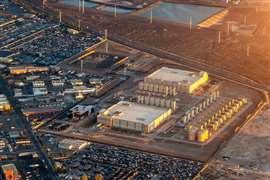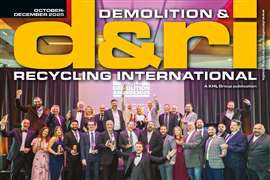Editor's Comment: Not such a conservative industry
02 September 2014
.gif)
It would be easy to think of the construction equipment industry as a conservative business. After all, machines today don’t look radically different to many of their ancestors from decades ago. But a flick through the pages of the September issue of iC would tell you something different.
Look at the wheeled loader sector for example. Of course you can still buy simple machines with basic controls, and these sell well in many parts of the world where price is a big issue and it is difficult to justify lots of optional extras and expensive technology.
However, look at the new machines that are coming onto the market in Europe, Japan and North America. These feature some radical and innovative new designs that can make huge savings in fuel consumption.
For larger machines there is the Caterpillar XE system which places a hydrostatic drive alongside a traditional mechanical drive for huge fuel savings as well as smoother control. Further down the weight categories, both Liebherr and Hitachi are now offering machines with fully hydrostatic transmissions, which can cut fuel consumption by the order of -20% or better.
And it does not end there. In this month’s equipment section you can read about Komatsu’s intelligent machine control excavators, which are now commercially available following a launch at last year’s Bauma exhibition. These use tried and trusted GPS machine control systems along with a new generation of software and components such as stroke-sensing cylinders, to produce arguably the most accurate and efficient excavator ever.
And it is not just the major international players that are pushing the boundaries. Back in the wheeled loader sector, many of China’s leading players are now offering machines powered by liquefied natural gas (LNG). This not only makes for a huge reduction in running costs, but the fuel also comes without a lot of the emission and pollution headaches associated with diesel. Some of the same arguments have prompted manufacturers to offer propane-fuelled generators, as you can read in this month’s portable power feature.
The question with all these new technologies, and others such as hybrids, is where is the payback? Departing from design norms or bringing in new technology is bound to cost more than sticking with convention, so equipment buyers are going to want to know what the advantages are and at what point they offset the higher purchase costs.
This is something I think the industry could communicate better to customers. In fact I think it is something the industry will have to communicate better as more technology comes into play and the choices become more bewildering.





